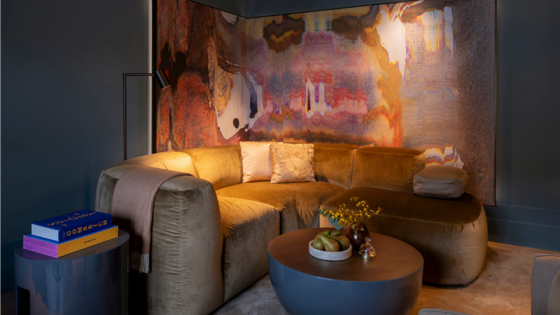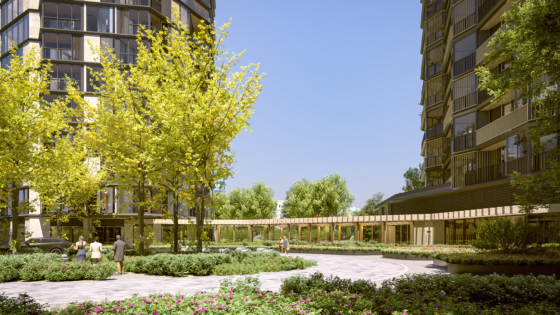Deloitte’s European Hotel Investment Survey 2018 reveals that Amsterdam is the number-one hot spot hotel investment, as London climbs to second…
Investors have named Amsterdam as the most attractive European city for hotel investment for the third year in a row, according to the 2018 European Hotel Investment Survey from Deloitte. The findings, based on responses from 122 senior hospitality figures from across the world, are revealed ahead of the 30th annual European Hotel Investment Conference taking place in London this week.
The news comes in after Independent Hotel Show announces its 2019 Amsterdam arrival. The European design hub continues to be seen as the most attractive hotel investment destination in Europe, with more than a third of respondents (34 per cent) ranking the Dutch capital top. London (24 per cent) has climbed back to second place from fourth in 2017, ahead of Paris (22 per cent) and Madrid (19 per cent). Dublin (18 per cent) and Barcelona (16 per cent), which featured in the top three last year, have slipped to fifth and sixth, respectively.
London’s rise comes despite 70 per cent of respondents saying that the UK is at a ‘peak’ or ‘downturn’ in its investment cycle. By contrast, investors identified France (50 per cent), Greece (48 per cent) and Spain (46 per cent) as the European markets that are currently on the ‘upturn’.
Andreas Scriven, head of hospitality and leisure at Deloitte, comments: “When it comes to hotel investment, Amsterdam is head and shoulders above the rest of Europe. It remains a standout destination for business and leisure, and is strategically placed as a gateway city. Given the investor appetite and lack of supply in the Dutch capital, we expect to see further inbound investment in 2019.
“It is reassuring to see London climb back up the rankings, and somewhat curious considering the uncertainty around the manner in which the UK will exit the EU in less than five months’ time. For London to continue to remain attractive to hotel investors, it will need to address concerns around over-supply and high pricing. Investors will be keeping a close eye on currency markets in the coming months, as sterling’s weakness is likely to be a key driver of inbound investment into the UK capital.”
Investors still expect top-line growth in the Regional UK hotel market
Respondents were also asked about their investment appetite towards the UK regional hotel landscape. For the fifth year in a row, Edinburgh has been named the most attractive UK regional city for hotel investments in the next 12 months, according to 39 per cent of respondents. Second-place sees Cambridge (30 per cent) overtaking Manchester (28 per cent). All three cities are also expected to see the highest growth in RevPAR (revenue per available room) in 2019.
The majority of hotel investors are optimistic about 2019 growth prospects in the Regional UK hotel market, with 52% of respondents expecting RevPAR growth to be between one – three per cent across the UK, although this is down from 70 per cent last year. Hotel investors were less confident when asked about 2019 expectations for gross operating profit per available room (GOPPAR), however. One in four respondents (25 per cent) expect GOPPAR to enter negative territory in London over the next 12 months, while 21 per cent expect negative GOPPAR in the Regional UK.
The research also revealed growing concern around pricing multiples, with expectations on EBITDA multiples for both London and Regional UK falling year-on-year. Despite the majority (53 per cent) expecting multiples of 11-14x in 2019, one in four respondents (25 per cent) expect less than 10x multiples across Regional UK, up from 11 per cent last year. Around a third (32 per cent), however, still expect to see EBITDA multiples of over 16x in London, falling slightly from 36 per cent in 2017.
Two-fifths (41 per cent) of respondents expect the primary source of investment into the Regional UK market to come domestically. More than a third (36 per cent) of hospitality leaders expect to see inbound investment coming from Asia Pacific (excluding China and India), increasing from 26 per cent last year. The perceived importance of North America and China as a source of investment has continued to decline, falling by five and ten percentage points respectively year-on-year.
Nikola Reid, director and head of UK hospitality at Deloitte comments: “The majority of hotel investors anticipate continued RevPAR growth in the Regional UK in 2019. However, one only has to scratch away at this surface to reveal clear concerns and intensity in operational cost pressures caused by inflation, staffing challenges and Brexit uncertainties. With significant headwinds to profitability, UK hotel owners and operators will need to continue to be more innovative with efficiency and productivity to preserve the bottom line whilst having to adapt to ever changing consumer habits and value expectations.
“Despite this, we’ve seen no shortage of capital chasing the exceptional level of portfolio activity this year fuelled by a number of new players in town and ensuing aggressive pricing. With a number of portfolios and large single assets still expected to come to market next year, and, as we move closer to a resolution on the Brexit negotiations, the strength of the transaction market may be tested.”
Economic backdrop fuelling concerns around talent retention
According to the research, 38 per cent of respondents identified ‘lack of economic growth’ as the number one strategic risk facing the European hotel industry over the next five years. Terrorism, which was last year’s number one risk after a series of high-profile attacks across Europe in 2017, has slipped to second place (34 per cent, down from 67 per cent).
In order to address the staffing issue prevalent in the European hospitality sector, three-fifths of hotel investors believe increasing pay would help attract the top talent over the next three years. Ensuring a faster career progression (48 per cent) and improving employee benefits (43 per cent) would also help attract and retain employees, according to respondents.
Scriven added: “Hotel investors are understandably concerned about the macroeconomic environment, which has exacerbated fears about attracting and retaining talent. Understandably, hospitality leaders are thinking about how they can keep hold of their staff. This is why we are seeing evidence of the need to increase pay and improve benefits packages, in order to mitigate factors out of their control.”
Main image credit: Pexels




